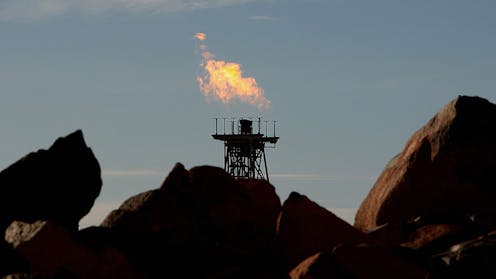In a world where climate change is no longer just a distant threat, but a pressing reality, the urgency to address the impacts of fossil fuel production has never been more critical. As countries grapple with the consequences of their actions on the environment, recent rulings from international courts are reshaping the landscape of climate responsibility.
Australia, a significant player in the global fossil fuel market, is facing increasing scrutiny over its role in exacerbating climate change. The recent decision by Latin America’s highest human rights court, mandating countries to protect their citizens from climate harms by regulating fossil fuel extraction, has sent ripples across the international community. This ruling underscores a growing consensus that nations must take decisive action to curb the detrimental effects of fossil fuel consumption.
The implications for Australia are profound. With a track record of approving hundreds of oil, gas, and coal projects, the country’s contributions to global emissions cannot be ignored. The approval of massive gas production endeavors like Woodside’s North West Shelf project highlights the disconnect between Australia’s actions and its climate responsibilities.
When coal and gas mined in Australia is burned overseas, emissions are three times those of our entire domestic economy.
As international pressure mounts for countries to phase out fossil fuel production, Australia finds itself at a crossroads. The Inter-American Court of Human Rights’ advisory opinion, emphasizing the rights of individuals to a stable climate and the duty of states to regulate fossil fuel activities, sets a precedent that directly impacts Australia. This ruling, while not legally binding, establishes a framework for understanding nations’ obligations in combating climate change.
UN Special Rapporteur on Climate Change and Human Rights, Elisa Morgera, called on nations to end new fossil fuel projects and begin phasing out fossil fuel production this decade, to protect human rights.
The evolving legal landscape underscores the shifting paradigms around climate responsibility. While Australia has argued for a narrow interpretation of its obligations under the Paris Agreement, international courts are challenging this stance. The recent ruling by the UN Human Rights Committee, highlighting Australia’s failure to protect Indigenous communities from climate impacts, is a stark reminder of the country’s responsibilities.
Domestically, Australia is also facing legal challenges regarding its emission reduction targets. The Federal Court’s impending decision on the government’s obligations to cut emissions to safeguard Torres Strait Islanders underscores the growing momentum for climate action within the country.
On his Pacific tour, Climate Change and Energy Minister Chris Bowen emphasized Australia’s commitment to addressing climate change and fostering regional cooperation.
As Australia navigates these legal and environmental challenges, the inevitability of transitioning away from fossil fuels becomes increasingly apparent. The joint bid with Pacific nations to host the COP31 climate talks signifies a commitment to shaping global climate policy. This collaboration underscores the shared responsibility of countries in tackling climate change and creating a sustainable future for all.
The time for Australia to heed the calls for climate action is now. With international legal precedents reinforcing the imperative to reduce fossil fuel production, the country must align its policies with global efforts to mitigate climate change. The voices of Pacific nations, supported by legal rulings and scientific consensus, are a poignant reminder that the era of unchecked fossil fuel expansion is drawing to a close.









Leave feedback about this